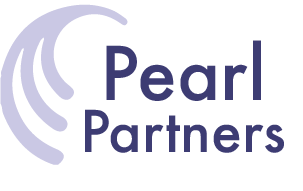I've noticed an interesting shift in the last couple of years when I talk with founders of start-ups. It used to be that they were only worried about building a new product with new technology. They often set out to solve a real market need, but the focus was mainly that of "if we build the better product, the market will follow."
Now, more and more realize that the product alone isn't enough to sustain a competitive advantage long enough to become viable companies. While they always felt that the things I talk about (customer experience, market motivations, etc) were important, there was an assumption that these intagible sources of value better served the needs of big companies looking to eak a few extra market share points.
I'm on the Advisory Board of a couple of start-ups – something I wouldn't have expected a few years ago. Yet each one that sought me out pointed to something I've said for a long time. The rate of technological and economic change is too fast for technology alone to be the sole source of competitive advantage.
This brings up an interesting dilemma. The work required to fully understand what motivates your market is not quick. It requires that you go deep into the psyche of how the market is making decisions, and then translating the decision making process into attributes that will enable your company to lead the market to places they never knew they wanted to go – but they are very happy when you lead them there.
This causes tension within a start-up because they usually begin when someone (the Founder) has a great idea. The idea is usually expressed in terms of a tangible offering. And it has to, because they need to quickly figure out how they will make money, and convince investors to provide the capital to get them on their feet and grow.
I've decided that I can only help start-up Founders who resonate with the above graphic. The first product launched (and by product I mean product, service, etc) needs to be some combination of what the Founder initially envisioned – which means that they can at least identify a need, and how their offering will satisfy the need. I usually press them to go a bit deeper, as well as identify a few targets in the market with whom we can do some basic research to confirm that the initial idea has two things. First, that it will satisfy a market large enough to get them started and on their way. Second, it needs to have enough "legs" that it will be able to be modified and evolved to deepen their advantage, even if it evolves beyond the Founder's initial ideas. They need to simultaneously focus on the present and the future.
This requires that start-ups understand that their first offering is just that – a start-up. It provides a platform to deepen a relationship with a market that with hard work will consider them one of their own. It is then less about the Founder creating a product or company, but an entire community to which they ideally become indespensible.

